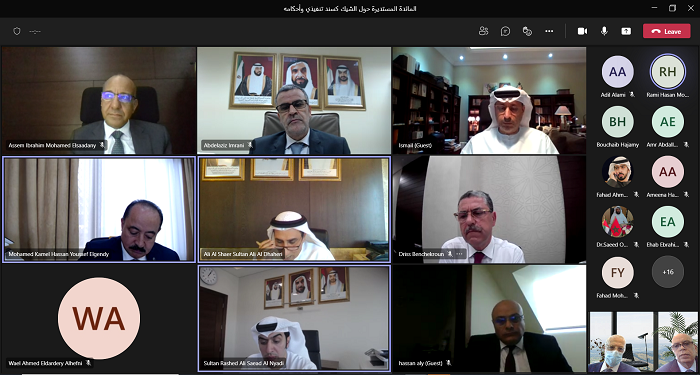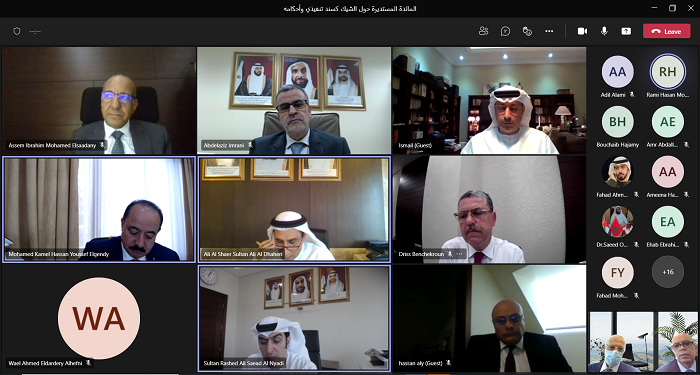Consolidating Legal Approaches
to Enforce the New Amendments
Round Table at the ADJD on the Provisions
of the Cheque as an
Executive Instrument
The Abu Dhabi Judicial Department (ADJD) organised a round table discussion on the provisions of the law dealing with the cheque as an executive instrument, as introduced by the recent legislation and conferring on the cheque the status of an executive instrument as a payment tool, in accordance with Federal Decree Law No. 14 of 2020 amending certain provisions of the Commercial Transactions Law, the Executive Regulations of the Civil Procedures Law and the Instructions of the Central Bank of the United Arab Emirates.
Counsellor Ali Al Shaer Al Dhaheri, Director of the Judicial Inspection Division at the Judicial Department, affirmed that the legislative amendments introduced in the provisions related to the handling of the cheque as an executive instrument are in line with international best practices that ensure promptness in taking legal steps to safeguard the rights of the claimants in record time, thereby enhancing the UAE's leading position as an investment incubator in the region and an attractive destination for investors and talents from around the world
The organisation of the round table on these developments, M. Ali Al Shaer said, aims to discuss the purposes of the recent amendments in the provisions dealing with the cheque and to unify the approaches and concepts according to the principles of proper legal and judicial interpretation, in line with the vision of His Highness Sheikh Mansour bin Zayed Al Nahyan, Deputy Prime Minister, Minister of Presidential Affairs, and Chairman of Abu Dhabi Judicial Department, to establish a pioneering and advanced judicial system that supports the efforts made to improve the economic environment, consistent with the UAE's vision for the next fifty years.
The event, which was attended by judges, prosecutors and government cases counsels, discussed the legal concept of the executive formula given to the cheque and its impact on jurisdiction, in light of the new amendments that established the principle of " the bearer of the cheque holds the medium for payment", and made it possible to enforce directly through the enforcement judge in case the cheque is returned for full or partial balance default, without resorting to lengthy court proceedings.
The round table also dealt with procedural and material provisions relating to the cheque as an executive instrument and with the exceptional cases that must be brought before the competent court in the context of payment orders and in summary proceedings, as well as with the cases of criminalisation related to the cheque, which includes the fraudulent issuing of cheques, the offences of forgery and use of forged cheques, the closure of the account or withdrawal of the entire balance deposited in it before the cheque is issued or presented to the bank, or the case of freezing the account, and the deliberate drawing up or signing of a cheque in such a way as to prevent its encashment.

